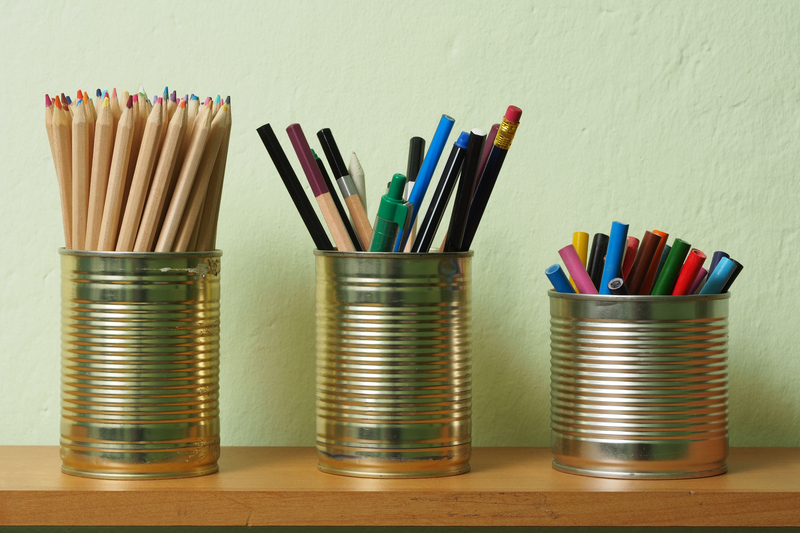Low-Cost Ways to Dispose of Bulky Waste from Your Home
Properly disposing of bulky waste from your home is essential for maintaining a clean and healthy living environment. However, the costs associated with junk removal services or landfill fees often discourage homeowners from clearing out old furniture, appliances, or other oversized items. Fortunately, low-cost solutions are readily available. In this comprehensive guide, we'll explore affordable methods to remove bulky household waste while also highlighting eco-friendly and community-conscious options. Whether cleaning out after a move, renovation, or spring purge, these tips will help you clear your clutter without breaking the bank.

Understanding Bulky Waste
Before diving into solutions, it's important to define bulky waste. Generally, these are items that are too large or heavy to be collected through regular curbside garbage pickup. Examples include:
- Sofas, couches, and armchairs
- Mattresses and box springs
- Large appliances (refrigerators, washing machines, etc.)
- Bedroom and dining room furniture sets
- Carpets and rugs
- Fitness equipment
- Garden debris (tree limbs, fencing)
- Construction materials
Because these items require special handling, finding cost-effective bulky waste disposal methods is especially important for homeowners.
Why Choose Affordable Disposal Solutions?
High dumping fees, labor costs, and environmental concerns have motivated many households to seek affordable bulky item disposal options. In addition to saving money, using low-cost or free services often means your unwanted items could benefit someone else, or be recycled for future use. This approach minimizes waste and helps create a greener community for everyone.
Top Low-Cost Ways to Dispose of Bulky Waste from Your Home
1. Utilize Free Municipal Pickup Programs
Many cities offer free bulky item collection days--either as scheduled events or by appointment. Check your local government website for guidelines on what types of items are accepted and how to schedule a pick up. Here are a few tips for maximizing this resource:
- Plan ahead: Some programs have limited slots or specific dates.
- Prep your items: Remove doors from appliances, secure hazardous parts, and follow placement instructions.
- Batch your waste: Place items together to save time and maximize your single pickup quota.
Municipal bulky waste collections also help keep illegal dumping rates down, ensuring cleaner neighborhoods for everyone.
2. Donate Usable Items to Charity
One of the cheapest ways to get rid of bulky household items is to donate them to local charities, thrift stores, or non-profits. Many organizations will pick up furniture, appliances, or large goods directly from your doorstep--for free! Notable recipients include:
- Goodwill
- Salvation Army
- Habitat for Humanity ReStores
- Local churches and community centers
When donating, ensure your items are in repairable or gently used condition. This approach not only clears space in your home, but also supports social good projects and reduces landfill burden.
3. Sell or Gift Items Through Online Marketplaces
If your unwanted bulky waste is still functional, why not try selling or giving it away online? Marketplaces like Craigslist, Facebook Marketplace, Freecycle, and Nextdoor allow you to list large goods for neighbors who may be seeking affordable furnishings or building materials.
- Take clear photos and write honest descriptions
- List items as "free curbside pickup" to minimize labor
- Vet respondents to avoid scams and ensure safety
Even if you don't make a profit, you can save money on disposal costs while helping someone else furnish their space.
4. Recycle Through Local Facilities and Programs
Recycling is both eco-friendly and economical. Many municipalities operate designated drop-off centers for recyclable bulky items like metals, electronics, and certain furniture parts. Some scrap yards and recycling centers may even pay you for recyclable materials such as:
- Metal bed frames
- Old appliances (after removal of hazardous parts)
- Large electronics (TVs, monitors, computers)
- Wood (for chipping into mulch or compost)
Always call ahead to verify accepted items and hours of operation. Remember to separate materials (metal, plastic, wood) for easier processing.
5. Organize a Community Cleanout Event
Community cleanouts or neighborhood swaps are a fun way to collectively dispose of household bulk waste. Here's how it works:
- Coordinate with neighbors and your local council
- Select a day for everyone to bring out unwanted large items
- Invite charities, recycling programs, or junk haulers to collect what remains
By sharing resources--like dumpsters or rented trucks--you can split costs and make the process more affordable for all involved.
6. Rent a Low-Cost Dumpster or Skip Bin
For major decluttering or renovations, renting a small dumpster or skip bin may minimize transport hassles. Shop around for best prices:
- Compare rates among several local companies
- Choose an appropriately sized bin to avoid overpaying
- Ask about neighborhood discounts or shared rentals
This option offers convenience and lower costs compared to hiring full-service junk removal teams.
7. Repurpose or Upcycle Bulky Items
Before tossing out everything, consider creative reuse ideas for your bulky household waste. Old doors can become tables, wood offcuts can become garden planters, and fabric from mattresses can be upcycled into pet bedding. Several online tutorials offer inspiration. Upcycling extends product life and saves on disposal fees.
8. Contact Scrap and Salvage Dealers
Many scrap yards and salvage companies are eager to collect metal, wiring, and certain wood products. Often, they'll arrange free or low-fee pick-up service in exchange for the materials. Refer to local business listings and compare reviews for reputable dealers.
9. Use Local "Bulky Item Amnesty" Days
Some municipalities or waste management companies offer amnesty events, during which residents can dispose of certain household bulk items at reduced or zero cost. Pay attention to local announcements and verify the kinds of waste accepted during these special events.
Tips for Reducing Bulky Waste in the First Place
While disposal is sometimes unavoidable, reduction is always the best strategy. Here are a few habits to minimize your future bulky waste removal costs:
- Buy quality over quantity: Invest in goods that last, reducing turnover.
- Rent or borrow for short-term needs: Avoid purchasing single-use items.
- Share or swap with neighbors: When possible, circulate useful household items within your community.
- Regular maintenance and repair: Keep appliances and furniture in good working order to extend lifespan.
What to Avoid When Disposing of Bulky Items
While saving money is important, it's also necessary to consider legal and ethical responsibilities. Never:
- Abandon items on the curb outside scheduled pickup days
- Dump waste in unauthorized locations, parks, or vacant land
- Dispose of hazardous materials with household waste (check local regulations on batteries, chemicals, etc.)
- Burn or bury bulky household waste, as this can cause environmental harm
Always research safe, affordable disposal options for each specific type of bulky waste.

Frequently Asked Questions About Low-Cost Bulky Waste Disposal
- What qualifies as bulky waste?
- Common bulky items include mattresses, appliances, large furniture, and similar non-compact garbage that cannot fit in standard bins.
- How can I find out about free collection days in my area?
- Check your city or town's waste management website, or call their public works office for a schedule and accepted items.
- Are there any items that cannot be picked up by municipal services?
- Some hazardous wastes, electronics, or construction materials are excluded. Always check your provider's guidelines first.
- How can I save money on removing an entire home's worth of bulky waste?
- Combine several disposal approaches--like donation, selling, and a single truck rental--to reduce overall costs.
- What are the penalties for illegal dumping?
- Fines, legal action, and community cleanup costs may result. Always use approved methods for bulky item disposal.
Conclusion: Dispose of Bulky Household Waste on a Budget
Getting rid of large, unwanted items doesn't have to drain your wallet. From scheduling free municipal pickups and utilizing donation programs to finding creative recycling or upcycling solutions, there are many low-cost (and even profitable) ways to manage bulky household waste disposal. By choosing the right mix of options for your needs, you'll clear your home, help the environment, support your community, and keep your finances in check.
For extra savings, remember to plan your cleanouts ahead of time, ask about seasonal collection events, and coordinate with friends or neighbors to share resources. With a little research and preparation, proper, affordable bulky waste removal is within everyone's reach!
Related keywords for additional searches:
- affordable bulky waste removal
- cheap ways to dispose of large household items
- inexpensive junk hauling tips
- low-cost furniture disposal
- eco-friendly bulky waste solutions
Ready to declutter? Start today using these smart, low-cost techniques to dispose of bulky waste from your home--your wallet, community, and the planet will thank you!
